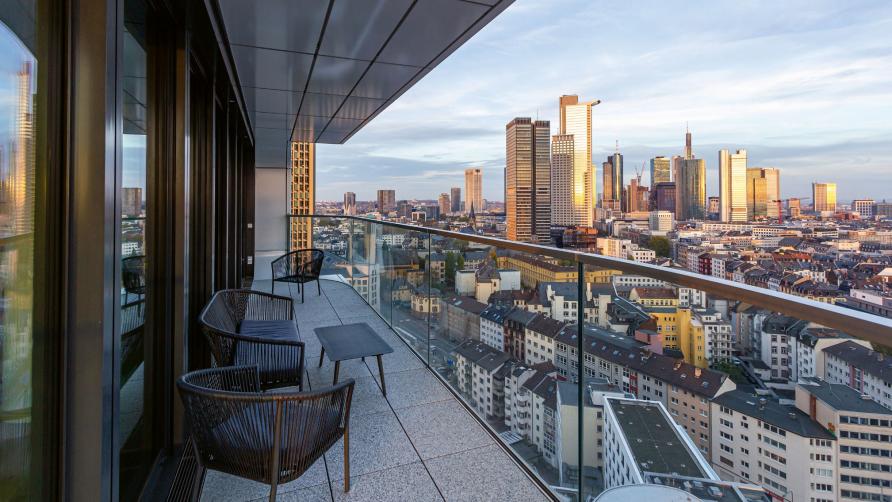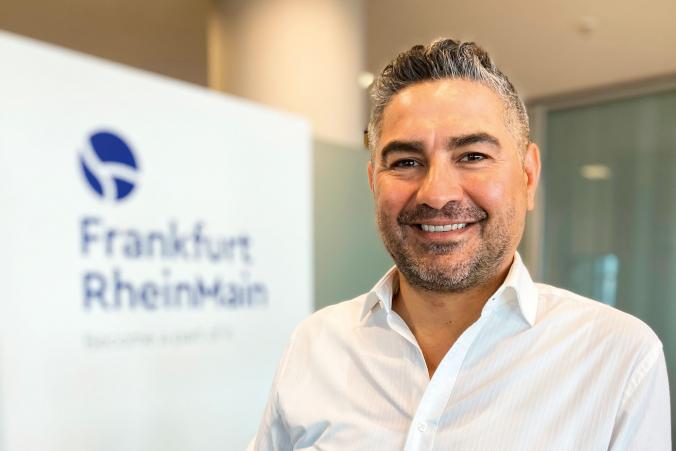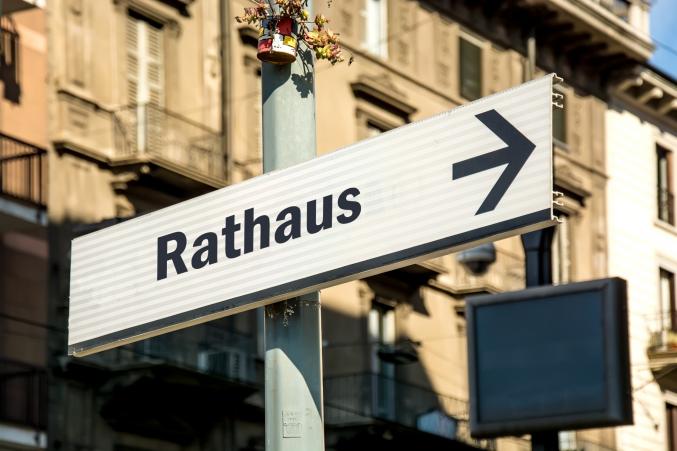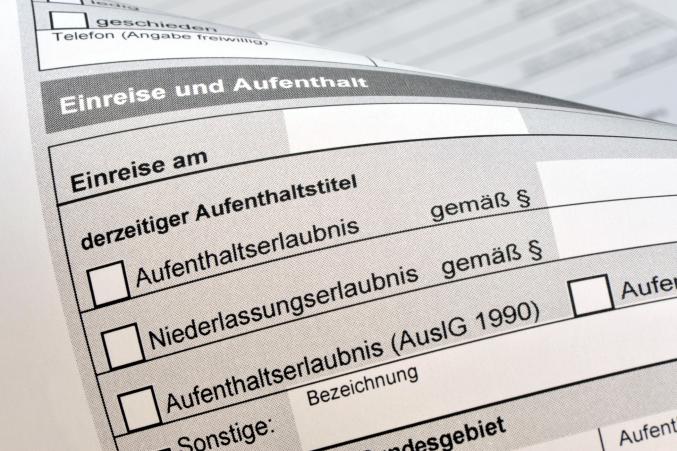
Foto: FSEID - stock.adobe.com
How to find the right place for you
The first task newcomers face is finding somewhere to live. Housing in Frankfurt Rhine-Main is not expensive by international comparison, but you will need to be prepared to hunt to find the right place.
Housing is probably the most essential issue when you first move to the Rhine-Main region. Newcomers face numerous, sometimes unsettling questions. Will I be able to maintain my quality of life? What will I get for my money? Which location is suitable to meet my requirements? Answers to these questions are needed quickly. If you are well informed – and have a bit of luck – your house hunting experience in Germany should go smoothly.
Before you begin your house hunt, take a hard look at your disposable income and set yourself a budget. The reality in Germany is that most people spend up to one-third of their gross salary on rent. Statistically, about six out of 10 Germans rent their home – and the figure is higher in major urban areas. The rent you pay reflects the location, the standard and age of the building, as well as the market value. The more convenient the apartment/house (i.e. proximity to public transportation or shopping districts or schools), the higher the rent.
In terms of cost of living, Frankfurt and its environs consistently rank in the middle of the international tables. Based on a basket of goods (groceries, transportation, accommodation, schooling and entertainment), Frankfurt is considered significantly less expensive than London or Paris. In terms of rents in the Rhine-Main region, housing tends to be equally priced in Frankfurt, Wiesbaden, and most towns in the Taunus region (Bad Homburg, Bad Soden, Kronberg, Königstein and Hofheim). Newcomers should be aware that apartments in Germany are usually rented empty rather than furnished. Most apartments will therefore not have a stove, light fixtures, a dishwasher or a washing machine. Tenants are expected to have their own. Landlords in the Rhine-Main region have become accustomed to renting to expatriates, and increasingly apartments and houses are fitted with built-in kitchens as well as bathroom equipment. Another alternative is to rent furniture: Two companies which offer this, are www.lyght-living.com and www.in-lease.com
If you plan to reside in Germany for a relatively short period of time, it may be more advantageous for you to choose to live in a fully furnished flat (möbliert). Thanks to the large international community living in the area, furnished apartments are not hard to find in Frankfurt. Such apartments are not cheap, but if you do the math, you may find it cheaper to pay the extra monthly fee to live in a furnished apartment for a few months or years compared with the costs of buying new furniture, etc.
Rent is classified as either Kaltmiete (you pay for heating, maintenance costs and other utilities separately), or Warmmiete (heating and other costs are included in the rent). Electricity is contracted directly by the tenant from the local utility. Although your utility bill will be based on your usage, you should ask the landlord what the previous tenants paid, so you can get a rough estimate of the additional monthly payments. There are restrictions on increasing the rent, but utilities can be increased at any time. Utilities are netted across the year into two instalments (i.e. your heating bill will be the same in winter and summer) and adjusted by the landlord.
The housing market in the Frankfurt and Rhine-Main region is tight, so if you are on a budget, don’t expect to have a wealth of choices. Indeed, apartments in Frankfurt’s beautifully restored buildings dating from the turn of the 20th century are rare and landlords ask for – and get – a premium rent. In general, apartments here are solidly built and in good condition, with modern insulation and plumbing.
If you choose to live in Frankfurt, you will likely have to live in an apartment. If you have your heart set on a house, then you are better off looking in the outlying areas, such as the Taunus. There are three different types of houses in Germany: a terraced house (called Reihenhaus, abbreviated RH); a semi-detached house (called Doppelhaushälfte, abbreviated DHH); and a standalone house (called an Einfamilienhaus, abbreviated EFH).
There are no rules on size or layout. Houses with three bedrooms tend to be the norm. Houses are measured in square meters rather than the number of bedrooms. A house of approximately130 sqm living space is considered average, and a house of 260 sqm very spacious.

Partner Portrait
FrankfurtRheinMain: International experts
FrankfurtRheinMain GmbH International Marketing of the Region (FRM GmbH) is the official location marketing organization of the Frankfurt metropolitan region.

Partner Portrait
FrankfurtRheinMain International Office
The FrankfurtRheinMain (FRM) region is unique: It has a strong economy with great job prospects. It offers great quality of life as well as cultural diversity.

Partner Portrait
Nice to meet you!
International professionals are welcome in Hessen, they can feel just like home here. Hessen offers the best working and living prospects for international professionals and their families.
THE CONTRACT
In most cases, rent contracts are a pre-printed version of the document recommended by the Tenants Society of the State of Hessen (Mieterbund Hessen). Note that most rental contracts stipulate that the tenant renovates the apartment – returning it to its originalstate – when the lease expires and prior to departure. Make sure the contract specifies this, i.e. what needs to be redecorated or repaired.
The duration of all rental contracts is unlimited and can be cancelled at three-month’s notice. There are, however, some exceptions to the rule. German rental law is complex, and it is important to know your rights and responsibilities. It is advisable to have the contract checked by your companyor a lawyer. If you do have trouble with your landlord, you might want to consult an attorney or one of the several tenant advisory centers in the region, which offer legal advice and representation. The membership fee of € 50 – 70 also includes legal insurance. There is a three-month waiting period after you join before the legal insurance takes effect.
Deutscher Mieterbund Landesverband Hessen e.V.
Adelheidstraße 70
65185 Wiesbaden
T: 0611 4114050
nfmtr-bnd-hssnd
www.mieterbund-hessen.de

How to Apartment Hunt
When looking for a property, it always helps to dress for the occasion. Due to the shortage in the housing market, landlords often choose between several candidates.

Registration
Germany, you‘ll soon discover, is a very well-run country. But bureaucracy is a price for keeping a well-run operation.

Residency and Work Permits
Citizens of the EU, as well as Iceland, Liechtenstein, Norway and Switzerland, are permitted to work and live in Germany without a work or residence permit.

Choosing a Relocation Agency
The range of services on offer to assist in international relocations is extensive, but not all of the services will be applicable to every expatriate.

Moving with Children
Even if your household goods have arrived on time and your home search has gone smoothly, making sure your children feel at home is key.

Getting Married in Germany
If you become smitten with love during your stay in Germany, there is a chance you’ll want to get married.

Nannies
Often, international families hire a profession nanny to help look after small children, particularly if both parents are in full-time employment.

